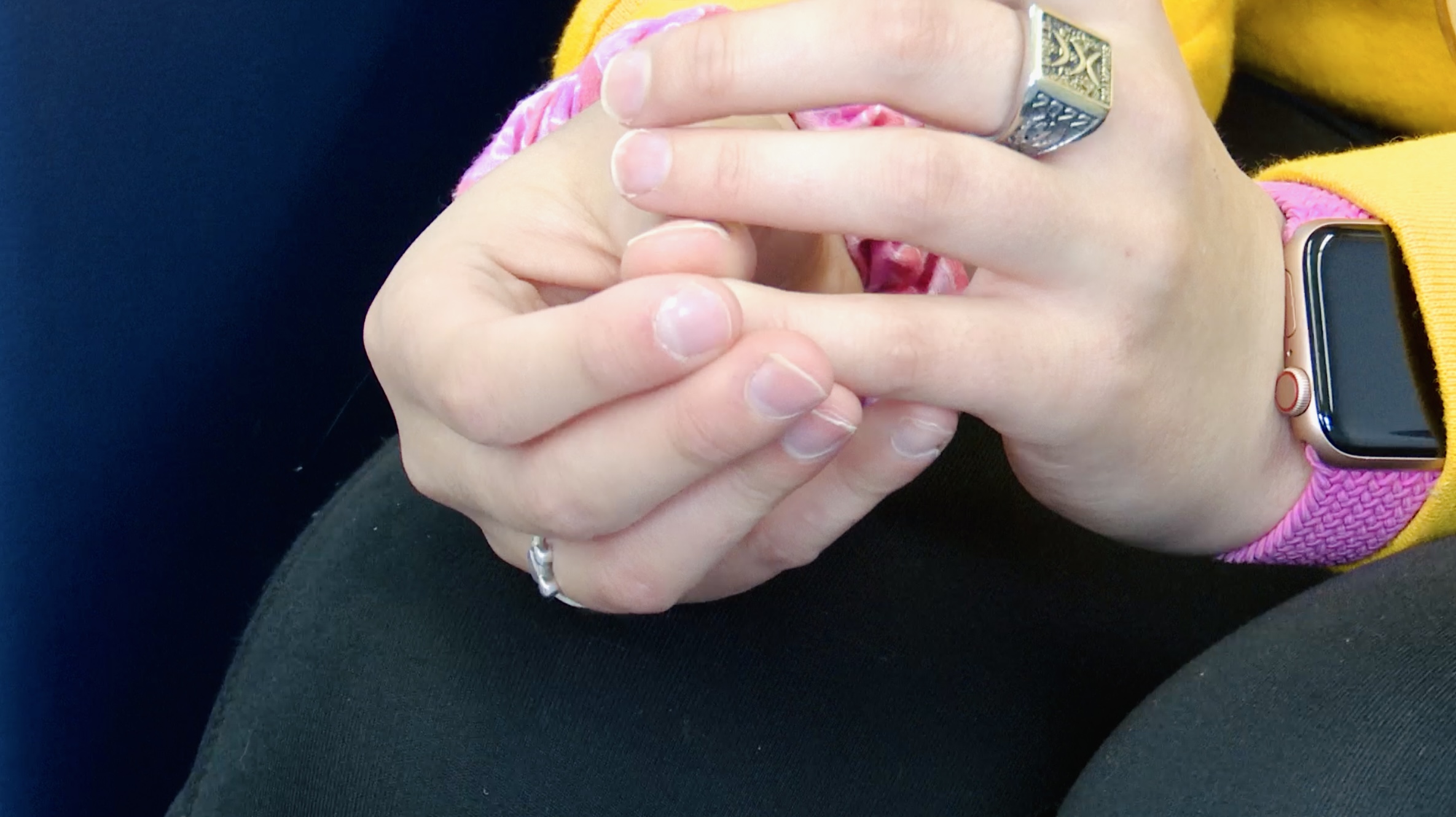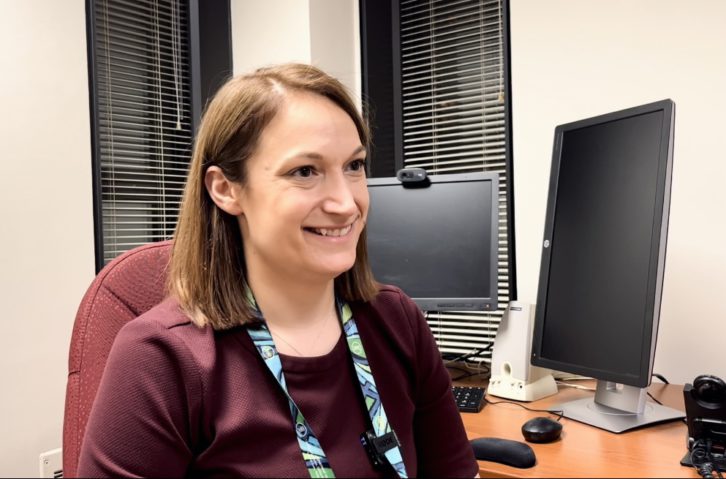Halifax scientist developing arthritis ‘frailty index’ at new research centre
The east coast's first Arthritis Research Canada Centre opens at Dalhousie University

caption
The hands and the ankles are where Halifax teenager Jenna Kedy experiences most of her arthritis pain.A newly-appointed scientist at the first-ever Arthritis Research Canada (ARC) base in Atlantic Canada is working to help doctors predict which rheumatoid arthritis patients might end up in emergency rooms.
Halifax rheumatologist Dr. Alexandra Legge is developing a so-called “frailty index” that’s specific to rheumatoid arthritis.
The original index was created in the early 2000s, at Dalhousie University, to summarize fitness or frailty among all older adults.
Legge is adapting the system to help healthcare professionals understand how frailty impacts people with rheumatoid arthritis, an autoimmune disease that affects one in five Canadians. Related stories
“Clinical trials often exclude older, frail individuals, so we have limited information about the best approaches to treating rheumatoid arthritis in this patient group,” Legge told The Signal from her office at Dalhousie, days after the new research centre was announced.
Legge said the best-case scenario would be for the adapted frailty index to provide front-line healthcare workers with guidance on how best to treat rheumatoid arthritis patients.

caption
Dr. Alexandra Legge is one of two newly-appointed researchers at the Nova Scotia Rehabilitation and Arthritis Centre in Halifax.A national network
The Nova Scotia Rehabilitation and Arthritis Centre opened on Oct. 27, adding to a network that includes arthritis labs in British Columbia, Alberta and Quebec.
Legge, a researcher specializing in adult rheumatology, is one of two new appointees at the Halifax centre along with her colleague, Dr. Janet Roberts.
The pair now represent Arthritis Research Canada’s Atlantic branch that was the culmination of several months’ planning.
The patient’s voice
Legge and Roberts will have access to a wide network of specialists as well as a Canada-wide patient advisory board.
For those with arthritis, such as Halifax teen Jenna Kedy, the patient voice is critical to the development of new treatments.
“You could research arthritis for 10, 20 years and still not know what it’s actually like to be in that person’s shoes,” Kedy, an arthritis advocate, told The Signal from her home community of Lakeside, NS. Kedy, 18, has lived with juvenile arthritis her entire life.
“These really are diseases that can impact anyone at any time, including children,” she added.
Legge told The Signal about cases of inflammatory arthritis in children as young as 18 months.
Symptoms can include swelling and warm, painful joints that can cause debilitating stiffness and affect a person’s ability to walk.
‘Never had a day without pain’
Kedy says she’s accustomed to the pain, and despite taking medications to reduce it, she has yet to find a miracle treatment.

caption
Halifax cheerleader Jenna Kedy, 18, has lived with juvenile arthritis her entire life and says a new research centre close to home is exciting.“I have never had a day without pain, so I don’t know what that would feel like,” Kedy said. “Still to this day, if I woke up without pain I almost think that that would be scary because that’s not my normal.”
Kedy has not let the pain stop her from pursuing her passion — competitive cheerleading. She was drafted to Team Canada in April 2022 and competed at the Cheerleading World Championship in Orlando, Fla.
A new research centre close to home is exciting, Kedy said, as a shiny gold medal hung from her neck.
Legge added the new arthritis research centre is promising not only for patients but for early-career researchers like herself and Roberts.
“The Arthritis Research Canada network is one way for us to receive some mentoring from some more established arthritis researchers from across Canada,” Legge said. “I think that’s another really big advantage for us here in Halifax.”
About the author
Ella Macdonald
Ella Macdonald (she/her) is an aspiring video reporter and photojournalist with an interest in world affairs and health reporting. Originally...
